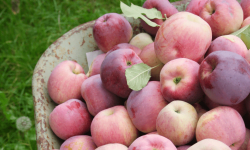Donating 10,000 meals in Pulses! For #WorldPulsesDay Spud is donating 10,000 meals worth with pulses…
At Spud, we are trying to bridge the knowledge gap between us and our food. These blog posts are written to educate you on the harmful effects of these ingredients, provide an explanation as to why we don’t carry them, and inform you on how these ingredients can be avoided.
Historically, food-eaters have had a tumultuous relationship with fat. As the story goes, there are healthy fats, unhealthy fats, fats that have been deemed ‘unsafe’ for consumption, and now new fats that resemble old, prohibited fats, but are disguised as new alternatives with cleaner reputations. We’re talking about hydrogenated oils and interesterified fats, both substances typically used to reduce costs and maximize the shelf life of many products that, fortunately, we do not carry at Spud!
Hydrogenated Oil:
What is it:
The process of hydrogenation means that we are turning a natural oil into a solid fat by forcing hydrogen into the oil at high pressure. For example, imagine that we are about to transform an unsaturated fat, like olive oil, into a saturated hydrogenated fat, like margarine. Science! Once this process is complete, our finished product will be solid at room temperature (yay?), and its molecular composition will actually now more closely resemble those of plastic or cellulose than it’s original, honest, olive oil self. Not exactly a win-win when you are on the consuming end of this trade-off.
What is it used for:
Hydrogenated oils can be found in margarine, vegetable shortening, many packaged snacks, baked goods (especially pre-made versions), ready-to-use dough, many fried foods, and both dairy and non-dairy coffee creamers
Why do you want to avoid it:
Hydrogenated oils affect heart health by increasing low-density lipoprotein (LDL), or ‘bad’ cholesterol levels, and decreasing high-density lipoprotein (HDL), or ‘good’ cholesterol levels.
Increasing the ‘bad’ cholesterol in your body is as bad an idea as it sounds, and results in the walls of your arteries becoming built up with plaque, which increases your risk of heart disease, heart attacks, and stroke. Think of ‘good’ cholesterol as the salt-of-the-earth cholesterol character who is always willing to lend a hand. The ‘good’ stuff cruises the bloodstream, dutifully picking up bits of bad cholesterol as it goes, then reduces, reuses, and recycles (wow!) the bad stuff by transporting it to the liver where it can be reprocessed. As with anything, we want to increase the good and decrease the bad in our lives, not the other way around.
Interesterified Fat
What is it:
Interesterified fat has actually been around since the 1930s, when it began being used as a cocoa butter substitute for the marketing of affordable chocolate. Since then, it has reemerged as a substitute for trans fat, yet not without raising a few eyebrows regarding health consequences. In interesterified fat, the fatty acids that make up each molecule are shuffled around. Similar to hydrogenation, which generates unnatural trans fats, interesterification produces certain molecules that are rare or non-existent in nature.
What is it used for:
You can find Interesterified fat in many foods that previously used trans fats, such as margarine and shortening, fried foods, baked goods, crackers, salad dressings, and mayonnaise.
Why do you want to avoid it:
Interesterification reduces the ‘good’ cholesterol guys we mentioned earlier, raises blood glucose concentrations, and slows the metabolism of glucose. This increases your risk of diabetes, but who wants to be eating something that had to be prepared in a lab anyway?
Product Labeling:
While you don’t have to worry about consuming these ingredients in any of the products from Spud, loopholes that exist within the legal guidelines of product labeling prevents companies from being held completely accountable in their labeling transparency. In Canada, the Food and Drug Regulation does not require that ‘interesterification’ be declared in the name of the product. You may see terms such as ‘high stearate’ or ‘stearic rich fats’ instead of interesterified. Or, even more confusingly, you may see terms like ‘fully hydrogenated vegetable oil’, ‘palm oil’, or ‘palm kernel oil’, meaning that the product may or may not contain interesterified fat. Choosing fresh groceries is the easiest way to avoid these ingredients, and if you’re skeptical of a certain product, best to just stick it back on the shelf and choose something you can feel good about.
We’re trying to bridge the knowledge gap between ourselves and our food. It’s daunting to flip over the package and skim through a list of 50 ingredients that you’ve never heard of, so let’s change that. Let’s raise the bar on transparency, and become active ambassadors of our own health.




